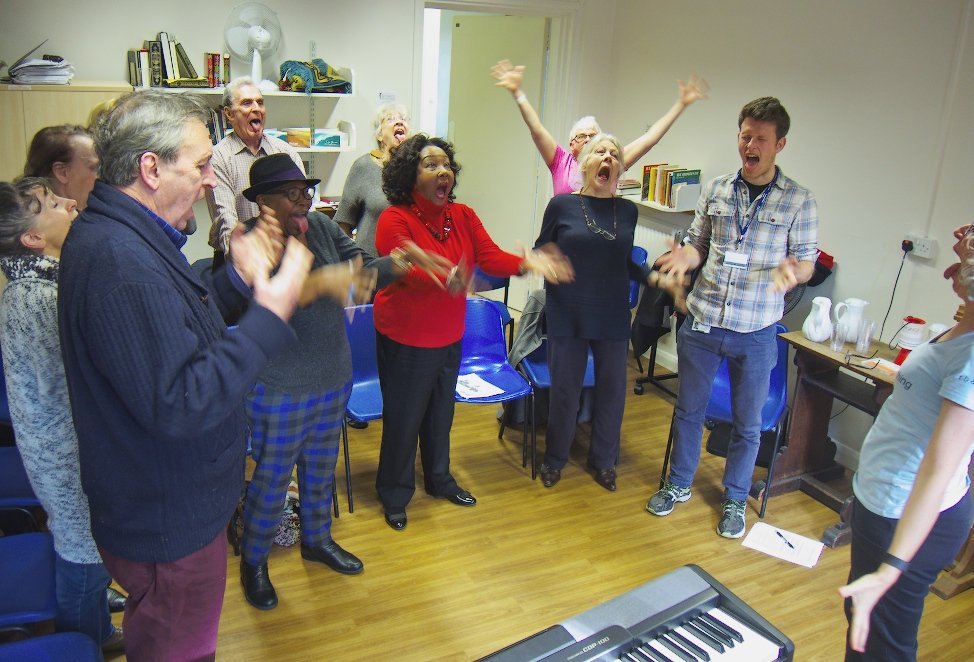Research and years of experience have shown singing in a group contributes to …


StarSong brings people together to share the advantages of singing in a group setting. Research shows that singing in a group, more so than singing alone or just listening to music, has physical, mental & social benefits throughout your life.
People who sing together experience firsthand the positive impact doing so has on their physical, mental, and social health.
To relax and warm up the body, StarSong uses gentle, chair-based movements in our sessions that are appropriate to people of all ages, shapes and sizes. These activities prepare singers to expand their lungs & ribs for singing and can promote increased body flexibility, better posture and enhanced muscle tone in the chest and abdominal muscles.

Chorus America. (2009). The chorus impact study.
Washington, DC.: Chorus America, pg. 17.
StarSong sessions use gentle, chair-based movements to relax and warm up the body. Appropriate to people of all ages, shapes and sizes, these activities prepare singers to expand their lungs and ribs.


Studies support that singing together can bolster the immune system and may even counter symptoms of colds and flu. After participatory singing the immune response has, “a significant increase in secretory immunoglobulin A (1gA) associated with an enhanced immune function, specifically in respiratory function.”

Singing in a choir or group has shown both cognitive and psychological health benefits such as elevated mood, improved sense of relaxation and a reduction in stress levels.





Singing in a group creates a social connection that reduces loneliness and isolation and fosters a sense of belonging. Previous participants expressed feelings of closeness with each other, a dedication to weekly participation because of an interdependence with others. This sense of community and support impacts physical and mental well-being.


StarSong provides a safe environment for what can be a vulnerable activity. (We all tend to critique ourselves as we sing.) Sessions create a positive atmosphere that supports a sense of confident personal agency. Self-esteem can be improved by participation and goal accomplishment.
“More specifically, participants explained that singing was, for instance, a form of communication that was safe, that it enabled them to express emotions in a supported environment and communicate in a socially unthreatening way. For many who had a history of social anxiety, this was highly valued, and the majority of interviewees reported a significant improvement in personal social skills and confidence.”
“On a personal level, active music engagement offers enjoyment, personal development, validation, self-confidence, and empowerment for older people. Singing in a community choir supports collaborative, provides individual and shared performance opportunities as a means of preserving and sharing heritage and remembering and commemorating the past.”
“…regular musical participation offers opportunities in various musical styles should be available for the long term, as well as musical activities that help to connect with senior citizens’ inner selves, others, and their past, present, and future lives.”


“Changes in mood, oxytocin, and cortisol following group and individual singing: A pilot study.”
“Research has demonstrated group singing’s numerous psychosocial benefits. Before and after the 12-week program, psychosocial wellbeing was assessed through a series of questionnaires, including scales for loneliness, social connectedness, quality of life, and severity of respiratory disease. Preliminary results show that before and after 60 minutes of singing, participants reported increases in feelings of trust, liking, connection, and similarity with others in the group and a decrease in levels of distress and anxiety. In qualitative interviews, participants expressed that the singing group had a significant impact on their physical, emotional and social wellbeing.”